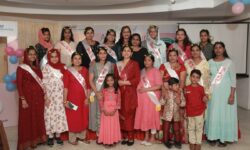THIRUVANANTHAPURAM:
Kerala has strongly validated its image of being an elder-friendly state by successfully managing physical and mental well-being of its old people, which is evident from the low mortality rates among this vulnerable section during the COVID-19 pandemic.
“The state being an elderly-friendly one has cared for the aged both in hospitals and in the community by providing uniform care irrespective of economic or regional differentiation,” said Dr Bipin Gopal, State Nodal Officer for Non-communicable Diseases and Elderly Care at Directorate of Health Services.
Managing the elderly population during a pandemic like COVID-19 is highly challenging and the fight against the virus becomes difficult as age itself is a major risk factor, lowering immunity levels and increasing the chances of infection, he said.
“More than 70 per cent of the senior citizens are living with one or more co-morbidities, which further affect their immunity levels making them more vulnerable to infections like COVID-19,” he added.
Ever since the announcement of reverse quarantine, Dr Gopal said the elderly were protected inside their homes and ensured provision of services at their doorstep. Volunteer groups and psycho-social teams ensured the physical and mental well-being of the elderly during the lockdown period
Among the major challenges the elderly faced during the lockdown was their inability to have their medical condition such as blood pressure and sugar levels checked. The stock of regular medication with each individual was not adequate enough to sustain during the lockdown period. This had to be managed by the department by providing drugs at their doorstep.
Over 200,000 elderly residing in Kerala are living single making them more prone to mental depression and anxiety. The anguish and apprehension about their kith and kin living outside the state and the country also added to their worries. Regarding the caregivers of the older persons, Dr Gopal said they were mainly from the community itself. The ASHA volunteers, Kudumbasree and Anganawadi workers, and Palliative Care volunteers with the support of health staff provided much-needed care at the homes of the elderly.
A major challenge was in providing service to the people in quarantine where doorstep delivery raised the threat of disease transmission both to the provider and the beneficiary. Educating them about the importance of room quarantine and making them practice social distancing within their homes was another hurdle.
Telemedicine services, tele-consultation and doorstep delivery of medical care were the efforts made by the Health Department for tackling the tricky situation of social isolation and the management of diseases. Decentralized medical care was adopted as the mantra to deliver medical care to every nook and corner.
The most important aspect of elderly care which the Health Department implemented was the psycho-social support to the old people. Psycho-social support teams were formed in all districts. They rendered telephonic consultation and counselling for the elderly, especially those living singly, thus alleviating their mental agonies to a great extent.
Over one million telephonic calls were made by the psycho-social team exclusively for the elderly and the marginalized people. “The health system had geared up to fight the battle against COVID-19, protecting the senior citizens in all aspects of healthcare using the entire health services system,” Dr Gopal said.
Statistics around the globe have indicated the correlation between COVID-19 infectivity and mortality with age. Studies from Wuhan, Italy and other western countries have clearly shown that the mortality rates during this new pandemic increased with age. In India also, the majority of the deaths occurred in the elderly age group, establishing a strong association between age and COVID-19 mortality.
Compared to the elderly, the younger generations are generally healthy and immunologically strong. Experiences from Sweden and other countries prove that young people, when exposed to the virus, are at low risk with an advantage of resultant herd immunity whereas in the elderly, it may end up in complications.




